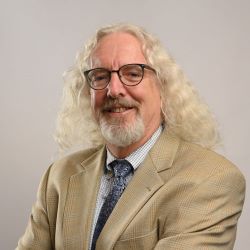LEAPS hosts semi-annual speaking engagements highlighting pedagogical advancements and teaching methods.
LEAPS Speaker Series

Series III
"Strategies for Promotion for Teaching-Focused Faculty: A Panel Discussion"
The Educator Development sub-committee hosted an in-person panel featuring experienced UMB faculty who shared insights on promotion best practices, challenges, and mentorship across tenure and non-tenure tracks, with a focus on teaching and clinical roles.

Series II
"Co-Creation of Curriculum: An Innovative Technology for Teaching that You Didn’t Know You"
Dr. Hugh A. Stoddard of Baylor College of Medicine delivered a virtual talk on his recent publication, highlighting the innovative concept of co-creating curriculum as a powerful teaching tool.

Series I
“White Space: A Critical Race Examination of Equity in Higher Education”
Scholars from UMB and UMD led a discussion on how white space and time manifest in higher education environments, exploring their impact on marginalized communities and inviting attendees to reflect on and apply these insights in their own contexts.
Contact
Leaders in Education: Academy of Presidential Scholars
Related Information
UPCOMING EVENTS
Save the date! LEAPS 4th Annual Symposium - March 26, 2026 - SMC Campus Center


